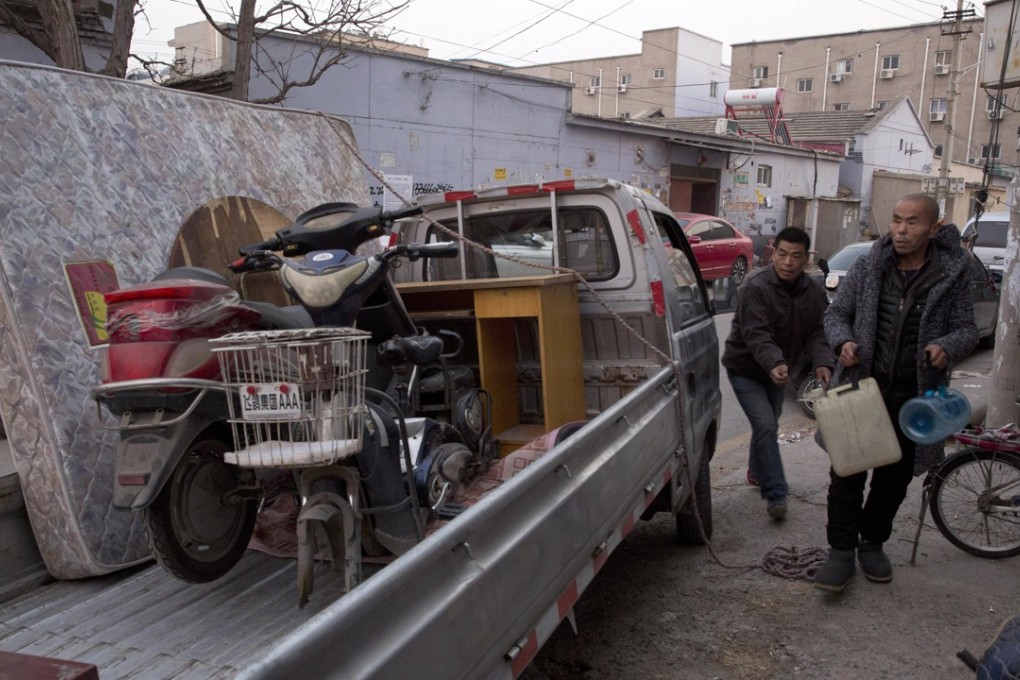Evictions waken Beijing middle class to plight of migrant workers
More affluent and educated residents of the capital shocked by the forced eviction of poorer workers from their homes in crackdown on illegal building work

Becky Zhang, an information technology programme manager, shares one trait with many of her fellow residents on the outskirts of Beijing –previously she rarely paid much attention to the plight of migrant workers who crammed into ramshackle or substandard homes in her district.
But the sudden eviction of thousands of the area’s poorest residents from “illegal structures” in the wake of a deadly fire in the capital earlier this month has opened her eyes.
“Where will they go?” Zhang said. “If they return home, can they find a job or be able to support their family? Must they be evicted in such a rigid, uniform way?”
Beijing’s authorities have moved to evict thousands of people, mainly poorer migrant workers, in the safety crackdown after a fire killed 19 people.
Some were forced out of their rented accommodation amid freezing temperatures with only a few days’ notice – sometimes even within hours.